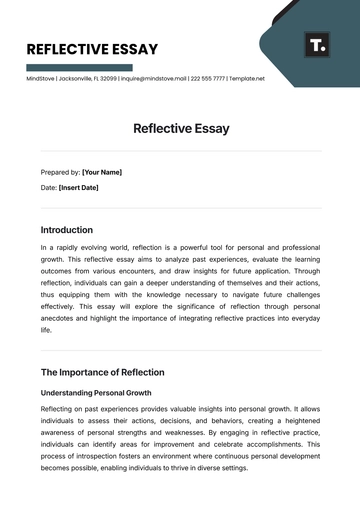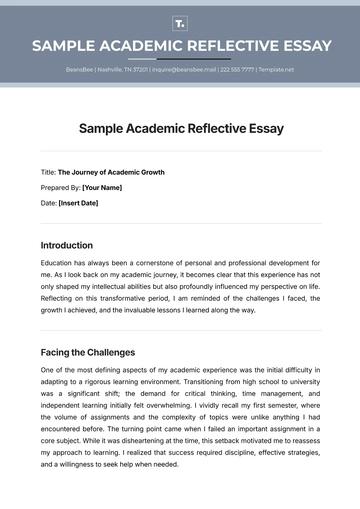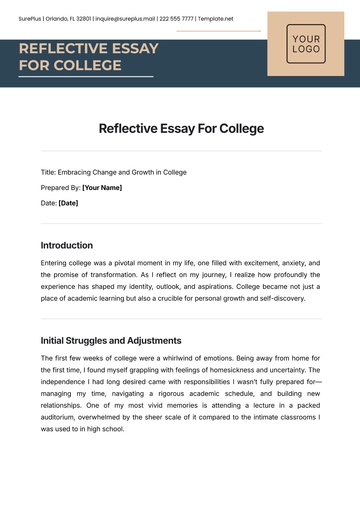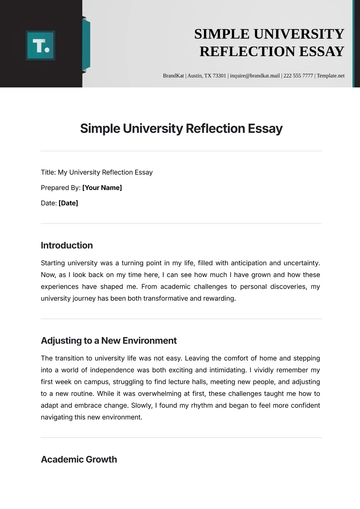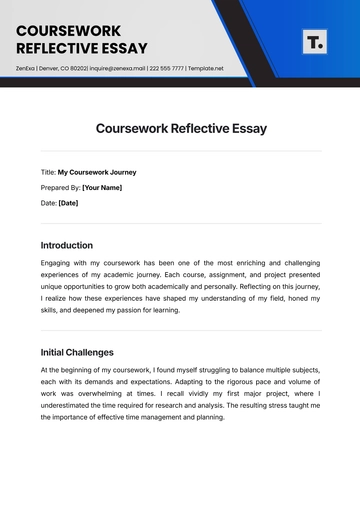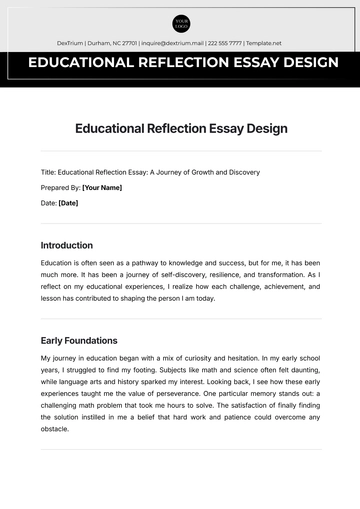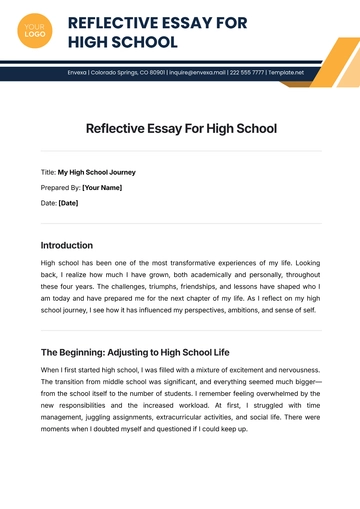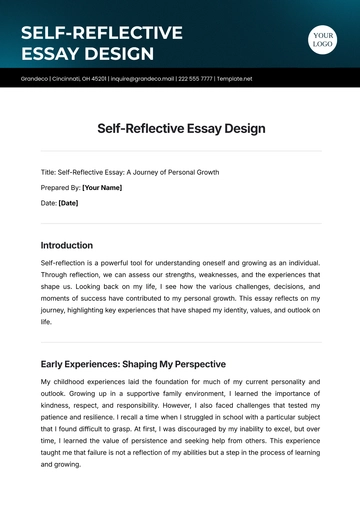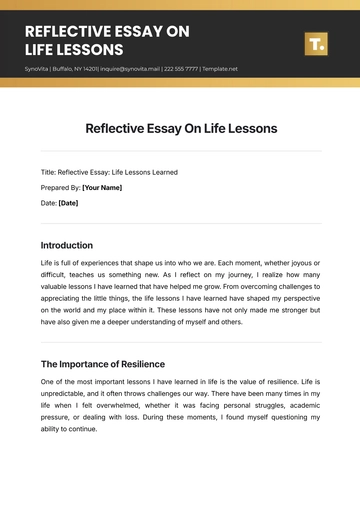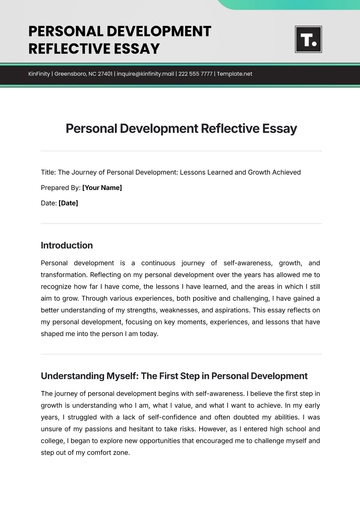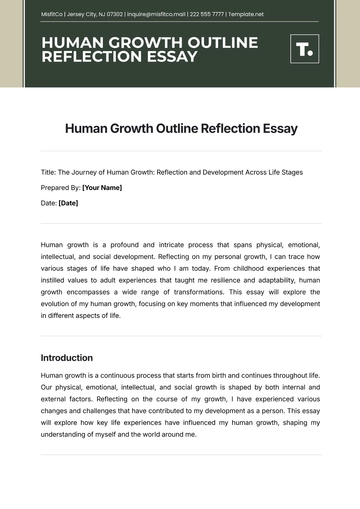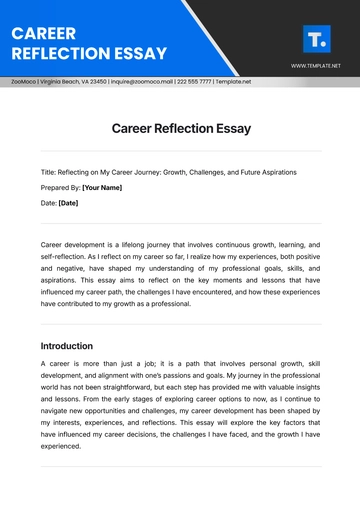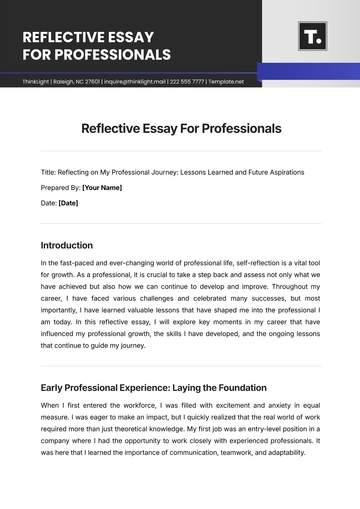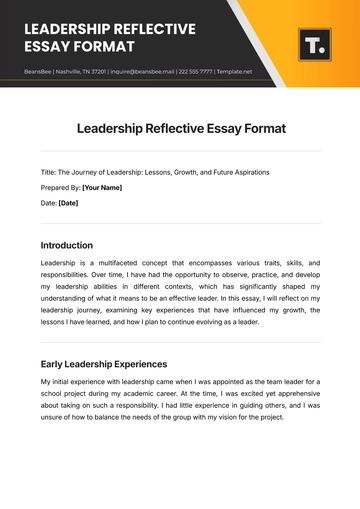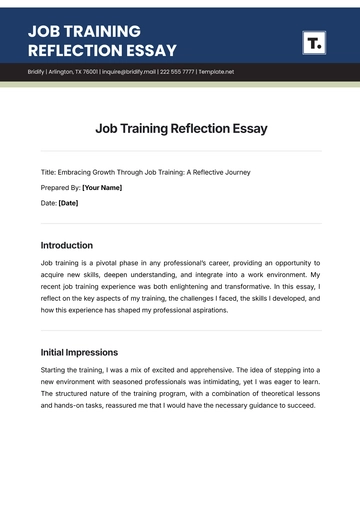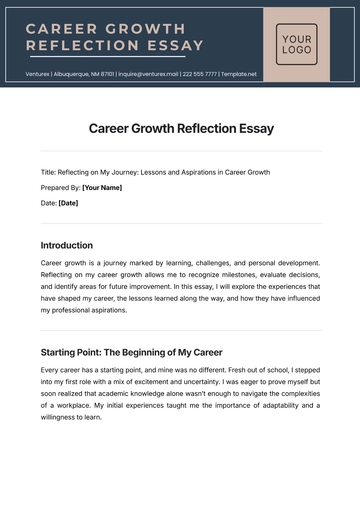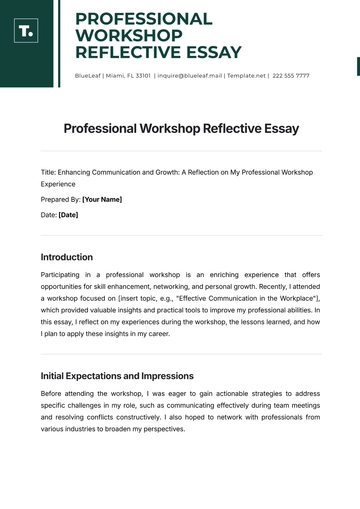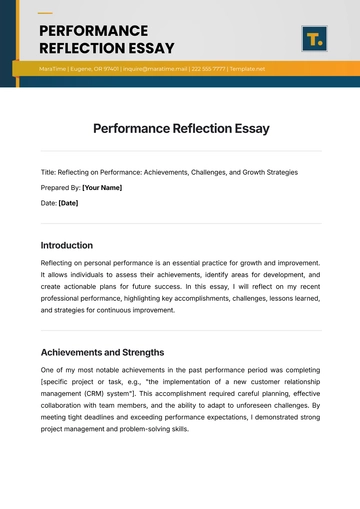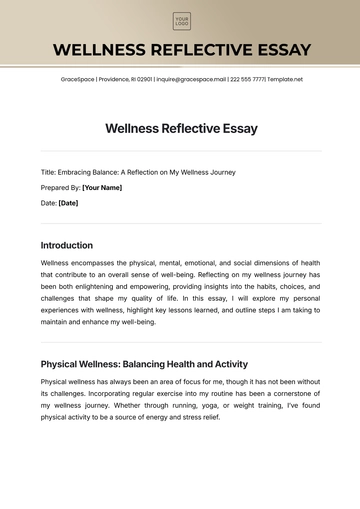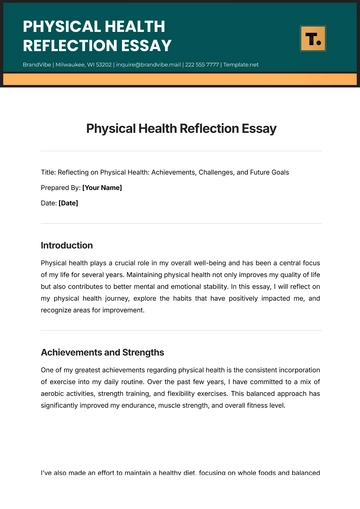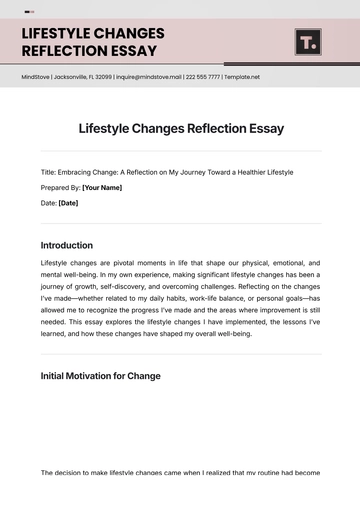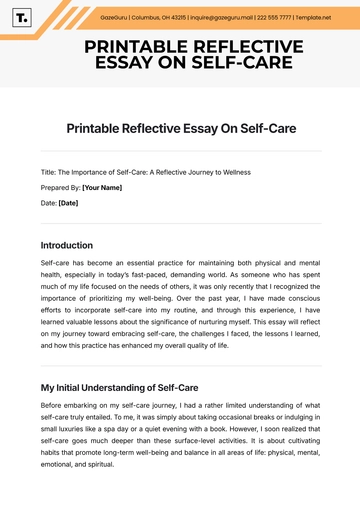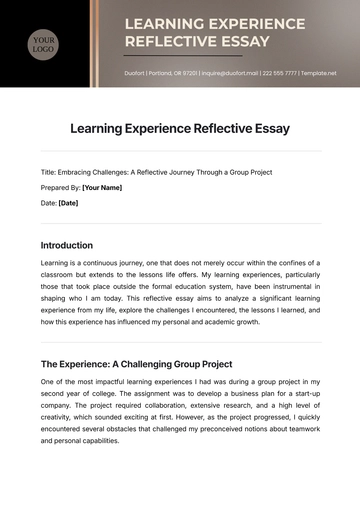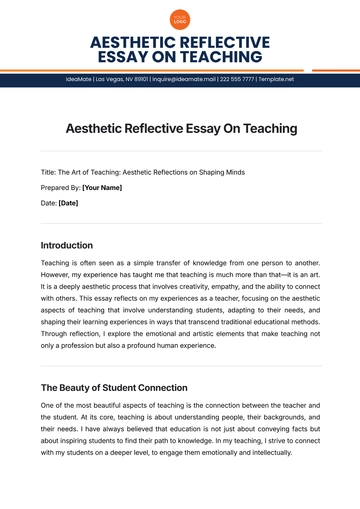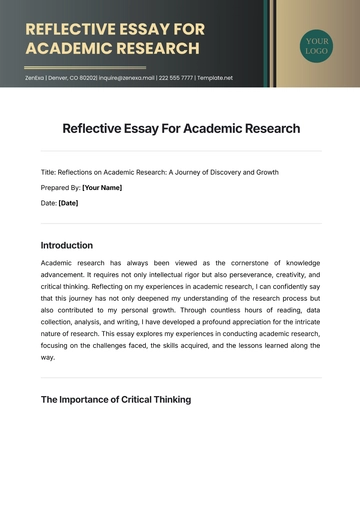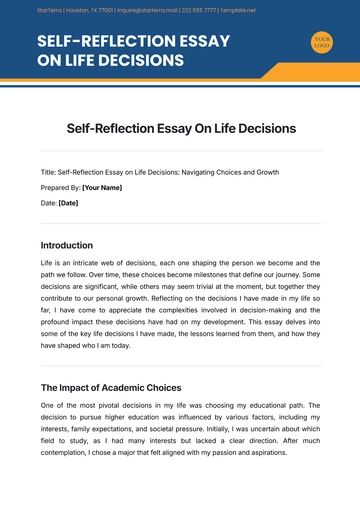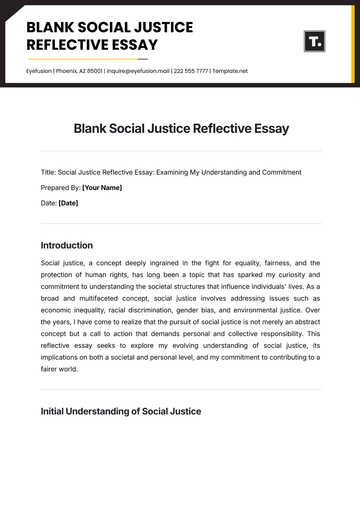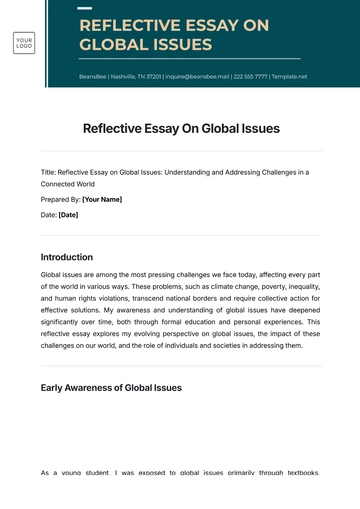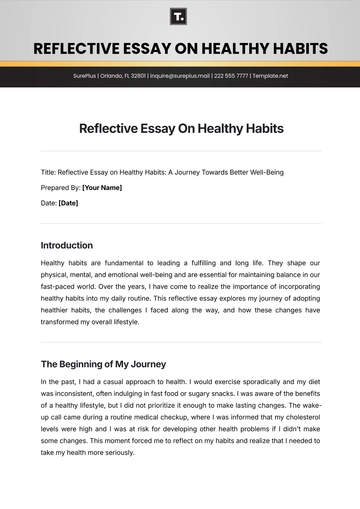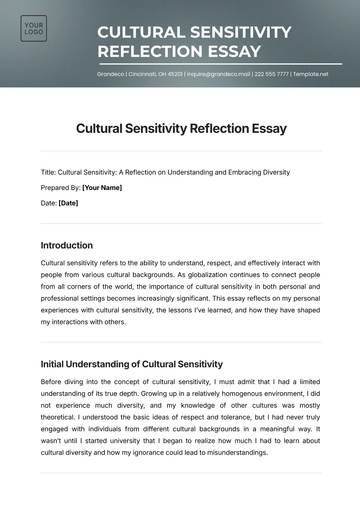Free Blank Social Justice Reflective Essay
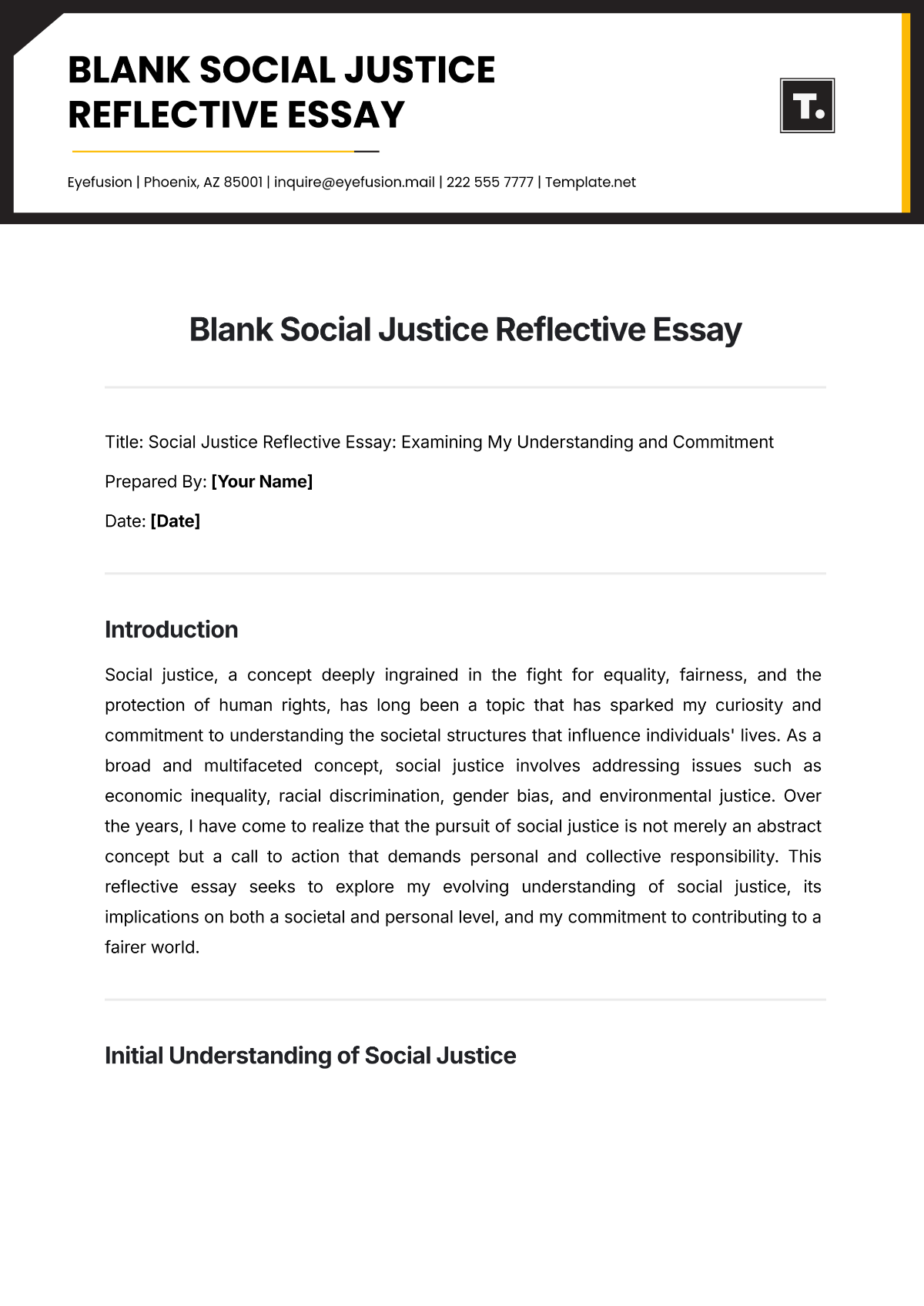
Title: Social Justice Reflective Essay: Examining My Understanding and Commitment
Prepared By: [Your Name]
Date: [Date]
Introduction
Social justice, a concept deeply ingrained in the fight for equality, fairness, and the protection of human rights, has long been a topic that has sparked my curiosity and commitment to understanding the societal structures that influence individuals' lives. As a broad and multifaceted concept, social justice involves addressing issues such as economic inequality, racial discrimination, gender bias, and environmental justice. Over the years, I have come to realize that the pursuit of social justice is not merely an abstract concept but a call to action that demands personal and collective responsibility. This reflective essay seeks to explore my evolving understanding of social justice, its implications on both a societal and personal level, and my commitment to contributing to a fairer world.
Initial Understanding of Social Justice
Growing up, my understanding of social justice was somewhat limited to surface-level concepts. I associated it primarily with equality—ensuring that everyone was treated fairly and given equal opportunities regardless of race, gender, or socioeconomic background. My early exposure to social justice issues came through educational programs, media, and public discussions, but it wasn’t until I began to engage more deeply with these topics that I realized social justice encompasses much more than just equality.
Through readings, discussions, and personal experiences, I began to grasp that social justice is also about the redistribution of resources, ensuring that historically marginalized groups are given opportunities to overcome systemic barriers. It involves challenging power structures and advocating for policies that protect the rights of those who have been oppressed. Social justice is not just about ensuring that everyone has the same opportunities; it’s about dismantling the systems that perpetuate inequality and creating an environment where everyone can thrive.
Personal Experiences with Social Justice
My personal experiences have significantly shaped my understanding of social justice. As I entered adulthood and became more aware of the world around me, I began to witness the many ways in which social injustices manifest in daily life. I encountered individuals from diverse backgrounds who faced discrimination based on their race, gender, or sexual orientation. These encounters were eye-opening, as I realized how pervasive and deeply embedded societal prejudices are. I began to question the fairness of the systems that seemed to perpetuate such inequalities.
One particular experience that stood out was my involvement in a community service project aimed at providing resources to underprivileged children in my city. During this project, I interacted with families who struggled with economic hardship, inadequate healthcare, and a lack of educational opportunities. I was confronted with the harsh realities of poverty and the barriers that many individuals face simply to survive. It was an awakening for me, and I realized that social justice isn’t just an issue for distant or abstract groups; it’s something that impacts real people in tangible ways every single day.
Broadening My Perspective on Social Justice
As my understanding of social justice grew, I started to learn more about the intersectionality of various forms of oppression. I came to understand that social justice issues are often interconnected, with race, class, gender, sexuality, and other factors influencing how individuals experience the world. The idea of intersectionality, popularized by scholars like Kimberlé Crenshaw, emphasized the importance of considering how multiple identities and social positions shape a person’s lived experience. For example, a Black woman may face unique forms of discrimination that are different from those experienced by a white woman or a Black man.
This new perspective made me recognize that efforts to address social justice must be multifaceted and inclusive. It is not enough to focus on one aspect of inequality, but rather to examine how various forms of injustice overlap and compound one another. I began to appreciate the need for a holistic approach to social justice—one that considers not just individual rights, but also the social, political, and economic systems that perpetuate inequality.
Challenges in Promoting Social Justice
While my understanding of social justice has deepened, I’ve also come to realize that advocating for social justice is a complex and ongoing challenge. One of the major obstacles is the resistance to change from those who benefit from the status quo. Power structures, whether they are in government, corporations, or institutions, often work to maintain the existing systems of inequality. This makes it difficult for marginalized groups to push for systemic change, as they are often met with opposition and dismissal.
Another challenge is the apathy or indifference that many individuals show toward social justice issues. Often, people do not fully comprehend the depth of inequality that exists in the world, or they may feel disconnected from those who are directly affected. In some cases, people are overwhelmed by the magnitude of social justice issues and feel helpless to make a difference. These challenges have taught me that social justice work is not something that can be accomplished overnight; it requires persistence, education, and collective action over time.
My Commitment to Social Justice
Despite the challenges, my commitment to social justice remains strong. I have realized that while individual actions alone may not be enough to bring about large-scale change, they are still an important part of the broader movement. Small acts of kindness, speaking out against discrimination, educating others about social justice issues, and volunteering with organizations that support marginalized communities can all contribute to a more just society.
Moreover, I have learned that social justice work requires not only advocating for the oppressed but also recognizing and confronting my own biases and privileges. I come from a background of relative privilege, and I need to acknowledge that I have a responsibility to use my position to amplify the voices of those who are often silenced. I have made a conscious effort to listen, learn, and act in ways that challenge my assumptions and contribute to dismantling systems of oppression.
Conclusion
Reflecting on my understanding of social justice, I recognize that it is an ongoing journey of learning, unlearning, and action. Social justice is about more than just recognizing inequality—it is about actively working to create a society where everyone is treated with dignity, respect, and fairness. It involves understanding the complexities of power and privilege and taking responsibility for contributing to change. While the road to achieving social justice is long and fraught with challenges, I am committed to doing my part. By continually educating myself, confronting injustices, and advocating for systemic change, I hope to contribute to a world where justice, equality, and compassion prevail for all.
- 100% Customizable, free editor
- Access 1 Million+ Templates, photo’s & graphics
- Download or share as a template
- Click and replace photos, graphics, text, backgrounds
- Resize, crop, AI write & more
- Access advanced editor
